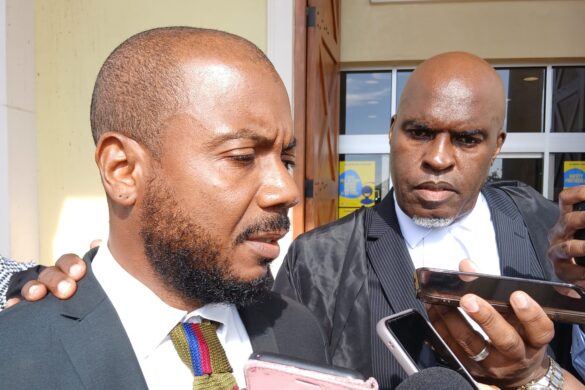One of Barbados’ leading pediatricians is sounding an alarm over the developmental delay in an increasing number of children evident during the COVID-19 pandemic.
Dr Clyde Cave, Director of Medical Services at the Queen Elizabeth Hospital (QEH), expressed concern about the indirect effect the health crisis was having on children, while pointing to the importance of them going back to face-to-face learning.
“It’s actually been shown now in recent papers that children born during this pandemic actually have some delay in their developmental milestones. This is not because the mother or the child was infected, that is a separate variable. This is because part of a child’s development depends on socialization, on looking at faces, learning to correlate expressions with emotions,” said Cave.
“When a large number of the persons they see have half their face blanked out because of wearing a mask this is already having an impact, and will potentially have long-term consequences that we are not fully aware of,” he warned.
Dr Cave was a panelist during an online session hosted by COVID-19 Public Advisor David Ellis, in which members of the media and the public posed questions to several health officials.
Stressing the need for students to get back to school to aid their development, Dr Cave said a careful balance was needed as officials continued to ensure public safety.
“Getting back to school is an imperative as is the physical health of the children and that is the balance we have to make from time to time . . . We know that children bring home the infections to the elderly and the more vulnerable, but it is not anticipated as a long-term strategy that keeping children out of school is the best thing to do. It is a delicate balance,” he said.
Preliminary results from several international studies have shown that babies born during the pandemic scored lower on neurodevelopment tests when compared to those born before the pandemic, especially in the areas of motor and social skills.
Pointing to the more direct impact of the virus on children, Dr Cave said fewer children than adults continued to test positive.
“Children have always been relatively less impacted than adults and this thankfully remains true. However, Omicron is so much more contagious there are many more children getting infected and even though it still remains a small proportion who will be sick, there will be instances of multisystem inflammatory disease in children and other complications particularly if those children have something else in their health profile that will make them extremely vulnerable,” he cautioned.
As it relates to the birth rate during the pandemic, the pediatrician said no analysis has yet been done, but indicated that the QEH was expected to make that data available by next month.
In any event, he indicated “Our birth rate has been falling successively over the last seven or eight years and we have not really appreciated a reversal of this trend. So I would anticipate, just anecdotally from the numbers, that we have not really changed the number of births.”
marlonmadden@barbadostoday.bb



